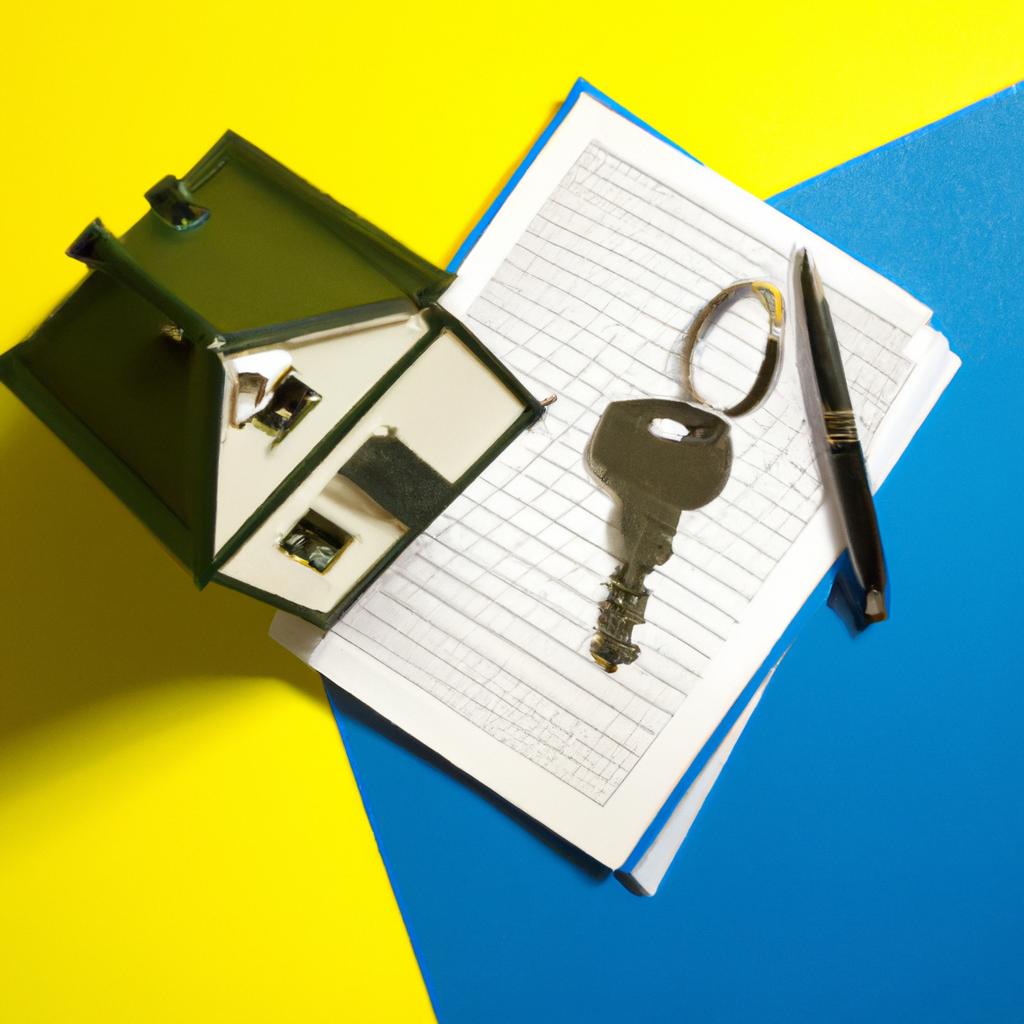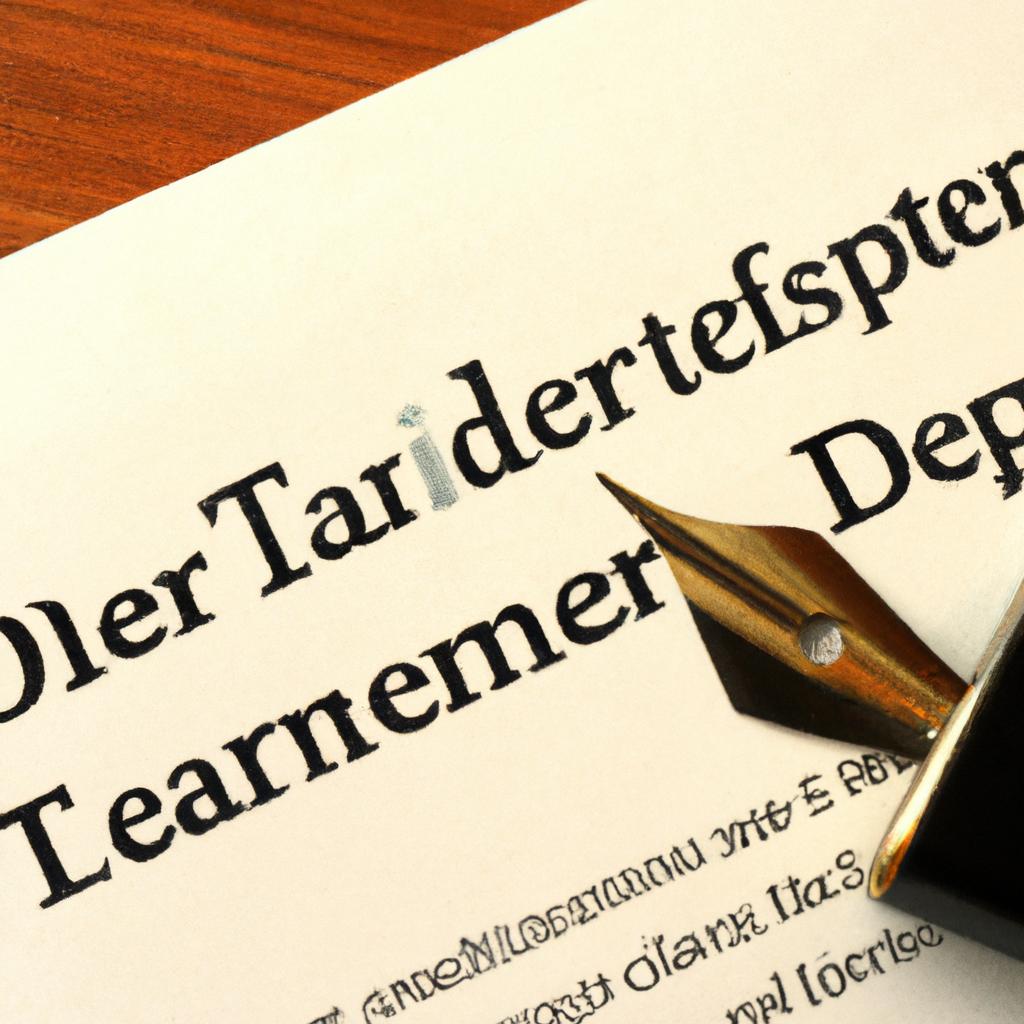It is a momentous occasion when one finally holds the keys to their own home, a place where memories will be made and legacies will be built. However, obtaining the deed to your property is not a simple task and requires careful navigation through legal processes. At Morgan Legal Group, located in the heart of New York City, we understand the significance of securing your home’s deed and are here to guide you through the intricate steps involved. In this article, we will provide an overview of how to obtain the deed to your house, ensuring that your property rights are firmly established and protected.
Understanding the Importance of a Deed in Real Estate Transactions
When it comes to real estate transactions, having a deed is crucial for establishing ownership and transferring property rights. A deed is a legal document that serves as evidence of the transfer of title to real property. It is important to understand the significance of a deed in order to protect your interests and ensure a smooth transaction process.
Obtaining a deed to your house involves several steps and legal considerations. Here are some key points to keep in mind:
- **Types of deeds**: There are different types of deeds, such as warranty deeds, quitclaim deeds, and special warranty deeds. Each type of deed offers different levels of protection and warranties.
- **Recording the deed**: In order to make the transfer of ownership official, the deed must be recorded with the county clerk or recorder’s office.
- **Title search**: Before accepting a deed, it is important to conduct a title search to ensure that there are no liens or encumbrances on the property.

Steps to Obtaining a Deed for Your Property
When it comes to securing a deed for your property, there are several important steps that must be followed in order to ensure the process is completed accurately and efficiently. The first step in obtaining a deed for your property is to gather all necessary documentation, including the original purchase agreement, property survey, and any relevant title documents. Once you have compiled these documents, it is important to verify the accuracy of the information and ensure that there are no discrepancies that could impede the transfer of the deed.
After confirming the accuracy of the documentation, the next step is to prepare the deed itself. This involves drafting the necessary legal language that transfers ownership of the property from the current owner to the new owner. Once the deed is drafted, it must be signed by the current owner and any other relevant parties, such as a spouse or co-owner. After the deed has been properly signed and notarized, it must be filed with the county recorder’s office in order to officially transfer ownership of the property.

Navigating the Legal Process of Transferring Ownership Through Deed
Transferring ownership of a property through a deed is a legal process that involves several important steps. To get a deed to your house, you must first determine the type of deed that is most suitable for your situation. Common types of deeds include warranty deeds, quitclaim deeds, and special warranty deeds.
Once you have decided on the type of deed, you will need to prepare the necessary documents, including the deed itself and any supporting paperwork. It is important to ensure that all information on the deed is accurate and up-to-date. After the deed is prepared, it must be signed by the current owner of the property and then recorded with the appropriate government office. This is a crucial step in the process of transferring ownership through a deed.

Consulting with Experienced Attorneys for Deed Drafting and Execution
First and foremost, when seeking to obtain a deed to your house, it is essential to consult with experienced attorneys who specialize in deed drafting and execution. At Morgan Legal Group, our team of skilled attorneys has a wealth of knowledge and expertise in this area, ensuring that your deed is meticulously drafted and executed to meet your specific needs and requirements. By enlisting the services of our seasoned professionals, you can rest assured that your property rights are protected and that the transfer process is carried out smoothly and efficiently.
When working with our team at Morgan Legal Group, you can expect personalized attention and tailored solutions to meet your unique circumstances. Our attorneys will guide you through the entire process of obtaining a deed to your house, from initial consultations to final execution. With our commitment to excellence and dedication to client satisfaction, we strive to provide the highest quality legal representation to ensure that your property rights are safeguarded and that your interests are protected. Trust in our experience and expertise to assist you in obtaining the deed to your house with confidence and peace of mind.
Q&A
Q: How do I go about getting a deed to my house?
A: Obtaining a deed to your house involves a few important steps that are crucial to securing ownership of your property.
Q: What is a deed and why is it important?
A: A deed is a legal document that transfers ownership of a property from one party to another. It serves as proof of ownership and is essential for establishing your rights to the property.
Q: How can I obtain a copy of my deed?
A: To get a copy of your deed, you can contact the county clerk’s office where the property is located. They will have a record of the deed on file that you can request a copy of.
Q: Are there any fees associated with obtaining a copy of my deed?
A: Yes, there may be a fee involved in obtaining a copy of your deed. The amount can vary depending on the county and their specific policies.
Q: What should I do if my deed is lost or damaged?
A: If your deed is lost or damaged, you can still obtain a copy from the county clerk’s office. It is important to keep your deed in a safe place to avoid any future issues.
Q: Can I transfer ownership of my property without a deed?
A: In most cases, a deed is required to transfer ownership of a property. Without a deed, it can be challenging to prove ownership and transfer the property to another party.
Future Outlook
Congratulations! You have successfully navigated the process of obtaining a deed to your house. By following the steps outlined in this article, you have taken a significant step towards securing your ownership of your property. Now that you have the deed in hand, you can rest assured knowing that your investment is protected. Remember, owning a home is a major milestone, and having a deed is a crucial piece of that puzzle. Enjoy your new sense of security and pride in homeownership!






